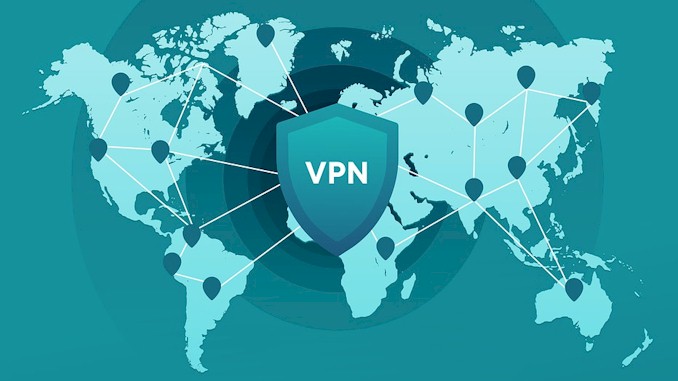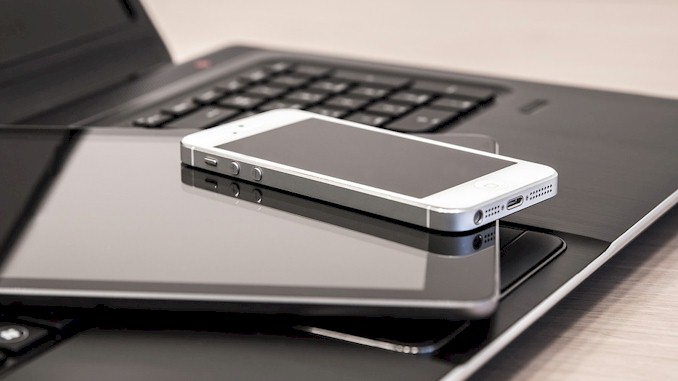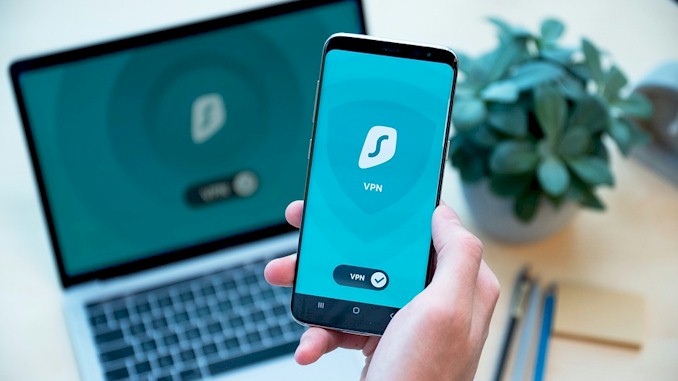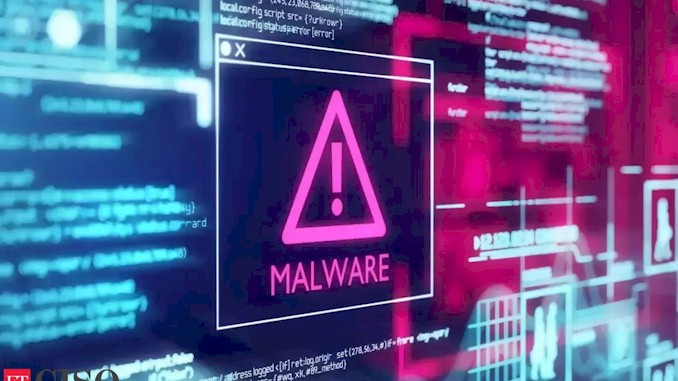Don’t Get Tracked: How VPNs Can Help Hide Your IP Address
Many people have wondered whether using a Virtual Private Network (VPN) hides your IP address. As someone who’s been using VPNs for a while I have lots of knowledge about VPNs. If you are wondering if using a VPN hides your IP address, then this is the place to go!
A VPN does hide your IP address by changing it to one of the VPN servers you connect to, making it appear as if you’re browsing from a different location with a different IP address. It adds a layer of anonymity to protect your online privacy.
If you’re interested in learning more about VPNs and how they can help protect your online privacy, you’re in luck. In the upcoming paragraphs, I’ll explain in greater detail how VPNs work, the benefits of using a VPN, and more information on the connection between your IP address and your privacy. So, if you want to take control of your online security and learn more about VPNs, keep reading! You won’t want to miss this.
How do VPNs hide your IP address?
When you use a Virtual Private Network (VPN), your device’s internet traffic is routed through an encrypted connection to a remote server operated by the VPN provider. This connection acts as a secure tunnel between your device and the internet, making it appear as if your traffic is coming from the VPN server’s IP address, rather than your device’s IP address. This process effectively hides your true IP address and location from websites, online services, and other users on the internet.
So how exactly does this work? When you connect to a VPN server, your device sends encrypted data through the tunnel to the server. The server then decrypts the data and forwards it on to the internet, using its own IP address instead of your device’s IP address. This means that any website or online service you access will only see the VPN server’s IP address, not your device’s IP address.
But why is this important? By masking your IP address and location, you can access content and websites that may be restricted in your region, such as streaming services or social media sites. Additionally, using a VPN can help protect your online privacy by making it more difficult for anyone to track your online activities or target you with advertisements based on your browsing history.
Can your IP reveal your home or work place address?
Your IP address can reveal some information about your location, but it typically cannot reveal your exact home or workplace address. Your IP address is assigned by your internet service provider (ISP), and it generally reflects the location of the ISP’s servers rather than your specific location. However, in some cases, it may be possible for someone to use your IP address to approximate your location, such as your city or region.
One common method for approximating location based on an IP address is called geolocation. Geolocation uses a combination of IP address data, wireless access point data, and other information to estimate a device’s location. This technology is often used by websites and mobile apps to provide localized content, such as weather forecasts or local news. However, geolocation data is not always accurate and can be influenced by a variety of factors, such as the use of VPNs or Tor networks.
Another way that someone could potentially use your IP address to approximate your location is through a technique called IP address mapping. IP address mapping involves correlating IP addresses with physical addresses by using public records or other databases. However, this method is generally not very accurate, especially for dynamic IP addresses that are assigned by your ISP on a temporary basis.
Overall, while your IP address can reveal some information about your location, it is unlikely to reveal your exact home or workplace address. However, it is still important to take steps to protect your online privacy and security, such as using a VPN to mask your IP address and encrypt your internet traffic.
Who is monitoring my IP address?
Your IP address can be monitored by various entities, including your internet service provider (ISP), government agencies, and potentially malicious third parties. Your ISP is required to keep records of your internet activity, including your IP address, for a certain period of time. In some cases, ISPs may be legally required to provide this information to law enforcement agencies or other government entities.
Government agencies, such as the National Security Agency (NSA) in the United States, may also monitor IP addresses as part of their surveillance activities. These agencies may use various techniques, such as hacking into networks or intercepting internet traffic, to monitor IP addresses and gather intelligence.
In addition to ISPs and government agencies, there are also potentially malicious third parties who may be monitoring your IP address for nefarious purposes. For example, cybercriminals may use techniques such as phishing or malware to gain access to your device and monitor your internet activity. They may also use your IP address to launch attacks on other devices or networks.
To protect your privacy and security, it is important to be aware of who may be monitoring your IP address and take steps to mitigate the risk. This may include using a VPN to mask your IP address and encrypt your internet traffic, regularly updating your antivirus software and other security measures, and being cautious about clicking on suspicious links or downloading files from unknown sources.
How accurate can IP address be traced?
IP addresses can be traced with varying degrees of accuracy depending on the techniques and tools used. Generally, the accuracy of IP address tracing depends on the amount of information available and the resources of the entity doing the tracing.
At a basic level, an IP address can be traced to a general geographic location based on the IP address range assigned to the ISP. This can provide information about the city or region where the IP address is located. However, this information is not always accurate, as IP addresses can be reassigned or used by devices in different locations.
More advanced tracing techniques can involve using specialized tools to gather additional information about the IP address, such as its physical location, internet service provider, and other details. This may involve using techniques such as geolocation or network mapping to pinpoint the exact location of the IP address.
It’s worth noting that while IP address tracing can be a useful tool for law enforcement or security professionals, it is not foolproof and can sometimes lead to false or misleading information. In some cases, malicious actors may use techniques such as IP address spoofing or proxy servers to mask their true IP address and avoid detection.
Overall, the accuracy of IP address tracing depends on a variety of factors and should be considered in the context of the specific use case and available information. While it can be a useful tool in certain situations, it is important to be aware of its limitations and potential for inaccuracies.
Can a cell phone IP address be traced?
Yes, a cell phone IP address can be traced, but the level of detail that can be obtained depends on several factors.
Firstly, it’s important to note that cell phone IP addresses can change frequently, especially if the device is using a mobile network or switching between Wi-Fi networks. This means that any tracing attempts may only provide a snapshot of the device’s location at a specific point in time.
Additionally, the level of detail that can be obtained from a cell phone IP address depends on the type of connection being used. If the device is connected to a Wi-Fi network, the IP address may be associated with the specific Wi-Fi access point being used, which could provide some location information. However, if the device is using a mobile network, the IP address may only provide general information about the location of the cellular tower being used.
Another factor to consider is the level of access that the tracer has to the network and associated data. Law enforcement and government agencies may have access to more detailed location data through partnerships with telecommunications companies or other sources, while other individuals or organizations may have more limited access.
It’s also worth noting that mobile devices can often be tracked using other methods besides IP address tracing, such as through GPS or cellular triangulation. These methods may provide more accurate location information than IP address tracing alone.
Overall, while it is possible to trace a cell phone IP address, the level of detail and accuracy that can be obtained depends on a variety of factors and should be considered in the context of the specific use case and available information.
Can my IP reveal my phone number?
Your IP address does not reveal your phone number directly. However, it can potentially be used to obtain your phone number through various methods. For instance, if your IP address is linked to your online accounts or social media profiles, an attacker could use this information to find your phone number by searching for public records or by conducting a reverse phone lookup. Additionally, if you have ever provided your phone number to a website or service that is associated with your IP address, that information could be used to track down your phone number.
Another way your IP address could potentially be used to reveal your phone number is through a technique called “SIM swapping.” In this scenario, a hacker gains access to your phone number by convincing your mobile carrier to transfer your phone number to a new SIM card that they control. This technique has become increasingly common in recent years, and it is often used in conjunction with other types of cyberattacks.
It’s important to note that protecting your IP address can help to mitigate the risk of your phone number being revealed through these methods. By using a VPN or other privacy tool to mask your IP address, you can make it more difficult for attackers to connect your online activity to your real-world identity. Additionally, taking steps to secure your online accounts and social media profiles can help to reduce the likelihood of your phone number being exposed in the event of a data breach or other security incident.
In summary, while your IP address alone does not reveal your phone number, it can be used in conjunction with other data sources to potentially uncover this information. Taking steps to protect your IP address and securing your online accounts can help to minimize the risk of your phone number being exposed to malicious actors.







